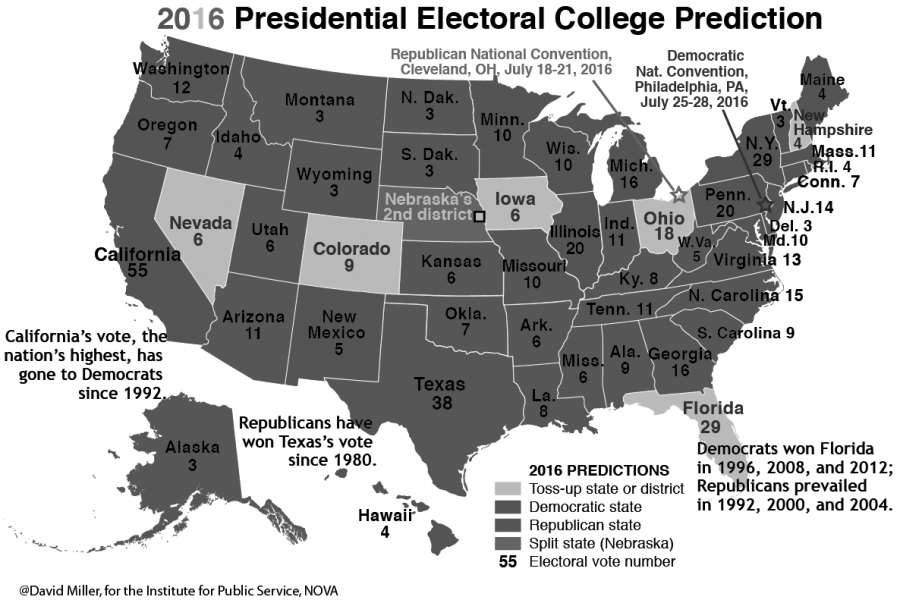Let’s Delegate, just be caucus
March 24, 2016
Nobody can avoid hearing news about the presidential candidates. All states primary voting ended on March 15th, leaving just the delegate math to be done. Delegate math is the primary and caucus results converted into delegates. The primary is held in each state (except the ones who use the caucus) on different days, except for Super Tuesday when several states hold it on the same day. The caucus is only used in 10 states. This is different from the primary because it is done at a convention and the people who are allowed to participate are registered voters limited to the party they’re affiliated with. Now, delegates are the people who attend the Republican and Democratic conventions on behalf of the candidates they’re pledged to. There are 2,472 Republicans, and 4,763 Democrats. For a candidate to win their party’s nomination, they have to receive half of the delegates’ votes. Another factor in the amount of delegates a Democratic candidate gets is the super delegates. Super delegates are elected officials who don’t favor either candidate. There are 712 super delegates, and as of March 2nd, 451 of them have expressed support for Hillary Clinton. The Republican nomination is leaning more towards Donald Trump than any other candidate. In the Democratic party, Hillary Clinton is leading Bernie Sanders, after all the other candidates have dropped out. Which candidate is your preferred choice? Over 300 West seniors voted in the primary election. Now it’s time to know your party and where they stand to make an informed choice next November.


